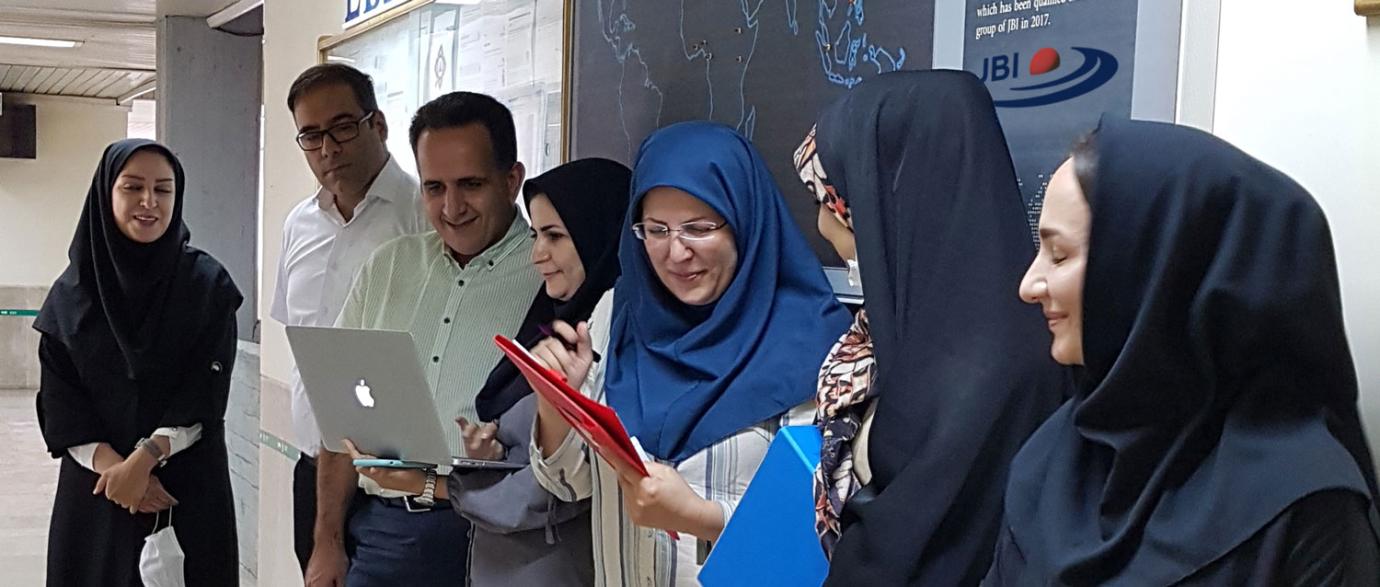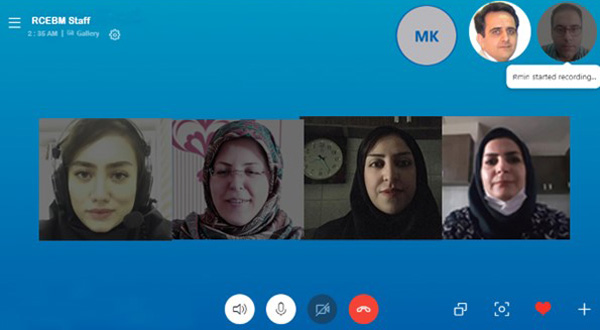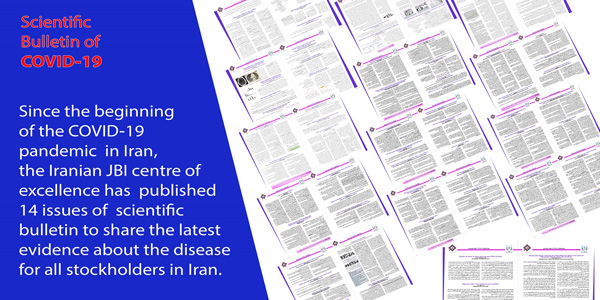Leading the way for an evidence-based approach to stemming COVID-19 in Iran

Iran was one of the first countries outside of China to be struck by COVID-19, and the first in the region to experience a major outbreak in early March 2020.
Soon after COVID-19 started its rapid spread, stores had closed, schools had shut down and employees had stopped working – the entire population was under lockdown. The researchers of the Iranian Research Center for Evidence-Based Medicine (IRCEBM) stepped in to provide an evidence-based approach to stemming the spread of COVID-19 in Iran.
IRCEBM is one of the core evidence-based medical (EBM) centres in the region. Based at the Tabriz University of Medical Sciences, it has strong links with major EBM centres worldwide.
Less than two weeks into the outbreak of COVID-19 in Iran, a team of academics, PhD candidates, medical students and scientists formed a COVID-19 response group to develop rapid evidence-based guidelines to help health professionals nationwide address COVID-19. The Ministry of Health delegated responsibility to IRCEBM to develop evidence-based guidelines.
Experienced IRCEBM librarians searched the best available evidence from evidence-based databases including PubMed, Embase, MEDLINE (via Ovid), Cochrane library, UpToDate, TRIP database and BMJ Best Practice. Reliable international health and guideline organisations were also searched for relevant evidence:
● The World Health Organization (WHO)
● Centers for Disease Control and Prevention (CDC), USA
● National Institute for Health and Clinical Excellence (NICE), UK
● National Health Commission of the People’s Republic of China
● National Administration of Traditional Chinese Medicine
The guidelines focused mostly on prevention and treatment of COVID-19 and were designed to present the best available evidence to aid decision-makers in implementing practice at the community-level. The team researched and developed guidelines for the following clinical questions:
• What is the shelf life of coronavirus outside the body?
• Is it necessary to use a mask in cases of COVID-19?
• Is vitamin D effective in reducing coronavirus infection?
• Does improved patient plasma improve COVID-19?
• What is the effect of chloroquine for prophylaxis of coronavirus infection?
• What are the criteria for discharge from hospitals or at-home quarantine?
The following topic areas and guidelines were also addressed:
• Self-assessment guide for daily coronavirus symptoms
• Community-based strategies for exposure to COVID-19
• The role of NGOs in the fight against coronavirus: an operational guide
• Transmission of coronavirus from human to human
• Management strategies for dealing with COVID-19: providing an operational guide
• Developing an airport departure protocol with a Corona disease reduction approach
• Comparison of chest CT and RT-PCR in the diagnosis of COVID-19
• Temporary clinical guideline for managing patients with Corona-approved disease
• Review of short and medium-term actions and programs of different countries to manage COVID-19 epidemic: providing community-based strategies for Iran
• Guidelines for preparedness and response to elderly rehabilitation and retention centres in COVID-19 epidemic conditions
• Low-invasive or endoscopic interventions in patients with COVID-19
Guidelines were made available to health centres nationwide through the Ministry of Health. Moreover, clinical questions from health centres were forwarded IRCEBM via the National COVID-19 Committee, where the dedicated COVID-19 response group searched the best-available evidence to produce evidence-based guidelines to respond to questions. All of the COVID-19 guidelines produced were clinician- and consumer-led, responding to problems experienced on the front line of COVID-19 in Iran. A number of the guidelines have been updated following requests from journal editors, clinicians or the Ministry of Health.
Importantly, the guidelines were also made readily accessible to healthcare providers, decision-makers and the general public via a call centre with on-call librarians:
‘No matter whether it was day or night, our call centre was ready to answer the questions and concerns of the public. Our on-call librarians were available 24 hours a day to search and retrieve the best-available evidence for healthcare providers’, says Morteza Ghojazadeh, deputy director of the Iranian Center for Evidence-Based Medicine.

Further active and passive dissemination included: publishing the guidelines as a book for dissemination to health professionals nationally; uploading documents to the IRCEBM website archive; sharing the guidelines via the IRCEBM WhatsApp group; publishing free-access articles; and publishing summaries via 14 public health bulletins:
‘During this time of distress and uncertainty the team of untiring researchers developed weekly COVID-19 bulletins covering hot topics. These papers were distributed by the department of research and technology of Tabriz University of Medical Sciences to all academic members and students of medical universities all around Iran’, says Morteza Ghojazadeh.
In these bulletins, summaries of the latest evidence about the diagnosis, treatment and prognosis of COVID-19 were translated into Farsi and shared with researchers and health professionals.

‘We pay tribute to all individuals who are helping to make an impact on improving the quality of healthcare in relation to COVID-19. The words of the Iranian poet Saadi Shirazi speak true in this time as nurses and health workers are all full of pain and worry:
‘Human beings are members of a whole
In creation of one essence and soul
If one member is afflicted with pain
Other members uneasy will remain.’
So, we stand together. Health providers, Iran stands with you. For we are one.’
Authors
Morteza Ghojazadeh1, Hanieh Salehi-Pourmehr1, Amin Talebpour1, Fariba Pashazadeh1, Hannaneh Baradaran2, Fatemeh Rahmati1, Robab Mehdipour1, Sakineh Hajebrahimi1
1. Research Center for Evidence-based medicine, Iranian EBM Centre: A JBI Centre of Excellence, Tabriz University of Medical Sciences, Tabriz, Iran
2. Department of Clinical Pharmacy, Faculty of Pharmacy, Tehran University of Medical Sciences, Tehran, Iran.
Disclaimer
Republished with permission from World Evidence-based Healthcare Day
https://worldebhcday.org/stories/story?ebhc_impact_story_id=103